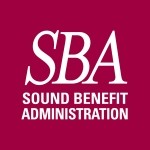An opening commentary by Gina Marken
In the past few months since the new QSEHRA was made available to small employers, we have received numerous questions about implementing these plans. While on paper, these programs seem to be a panacea for businesses looking to control healthcare costs, the reality is that employers, depending on the employee demographic, could end up actually hurting the employees they are trying to help.
I’ve had my own reservations about these plans, but for a gut check, I turned to benefits guru Sandy Wood for her take on the situation. She, too, has concerns and she’s sharing them here.
I will caveat that I do believe there are certain businesses, those with a generally highly paid staff, who might find this program beneficial. If you are a broker, faced with potentially losing a client who is considering instituting an QSEHRA, this is a good read that will help you coach and guide your client.
As always, if you have questions on this plan, or any of our alphabet soup collection of plans, please contact me.
– Gina
The QSEHRA: Proceed With Caution
By Guest Author Sandy Wood, CEBS, Chief Benefits Consultant, The Benefits Academy
In 2014, rules governing Health Reimbursement Arrangements (HRAs) tightened. To participate in an HRA that covers unreimbursed medical claims, an employee must be covered under a group medical plan. This could include the employer’s own group plan, or if an employer allowed, a spouse’s or parent’s plan. The new rules explicitly barred HRA dollars from being used to pay for individual medical coverage. The end result? A reduction in the number of stand-alone HRA plans.
The 21st Century Cures Act now provides a “cure” – the QSEHRA (pronounced either cue-sar-ah or quasi-h-r-a). Starting in 2017, small employers (less than 50 employees) are now permitted to offer this Qualified Small Employer HRA program, with lots more rules attached. More letters = more rules apparently.
Will the industry need to quickly ramp up for the droves of small employers racing to implement the newly minted QSEHRA? Well…not so fast.
The premise of this program is admirable — to help small employers provide assistance to employees to help them offset healthcare insurance premiums, in lieu of offering a group medical plan. And, according to the Kaiser Foundation, with only 25% of small employers in Washington State offering health insurance coverage, this new program would seem to be a widely-embraced gift to small employers.
If it sounds too good to be true…
Unfortunately, two of the rules throw a wrench into the bike spokes: 1) the QSEHRA amount could disqualify an employee (and possibly his or her entire family) from receiving Federal premium subsidies, and 2) if the employee does still qualify, the subsidy will be reduced dollar-for-dollar by the employer’s QSEHRA.
Who would offer these plans? Employers whose full-time employees are high income earners (since they already would not be eligible for Federal subsidies), and those where employees are eligible for a spouse or parent’s plan (again, already making them ineligible for subsidies). After all, why would an employer want to provide employees with dollars that will just be siphoned off, dollar-for-dollar, by the Federal government?
What should you do?
Take the time to familiarize yourself with all the new rules and requirements. Read this spec sheet for more plan information, as well as a list of “we just don’t know yet” questions to be aware of. Then, for all your small employers, you will want to really understand their employee topography before implementing a QSEHRA. And if they proceed, you will want to advise them to work with a plan administrator to make sure all the requirements are met.
The caution flag is still flying on this one.
About Sandy Wood.
Sandy Wood, CEBS, is President and Chief Benefits Consultant of The Benefits Academy. Sandy is the 2012 Past President of the International Society of Certified Employee Benefit Specialists (www.iscebs.org) and currently serves on the CEBS Committee of the International Foundation of Employee Benefit Specialists. She is a sought after speaker and recognized industry expert.
